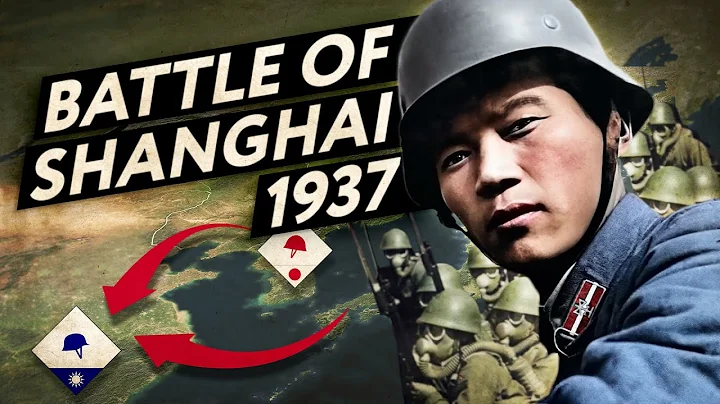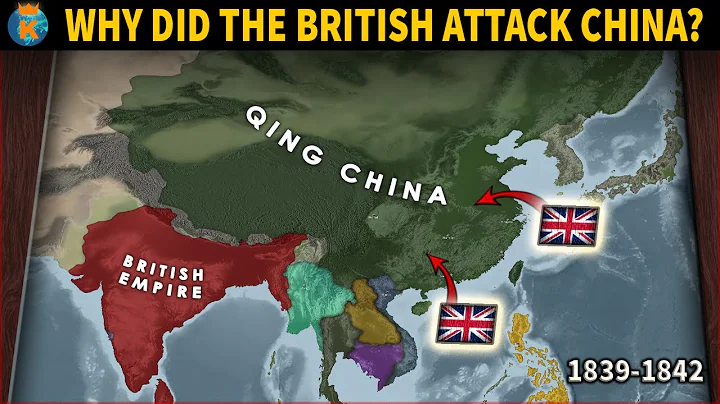Japan's occupation of Liaodong will bankrupt Russia's plan. After the news came, Russian Foreign Minister Robanov believed that ceding Liaodong to Japan was "the most uncomfortable thing." Finance Minister Witte said that "the seizure of any part of China's territory must not be tolerated", otherwise Russia "will destroy all achievements."

The "Treaty of Shimonoseki" was signed
The international relations at that time were that Russia and France formed the "Russian-French Alliance", and the United Kingdom was incompatible with Russia because the United Kingdom had always been worried about Russia's expansion in Central Asia and the Far East and threatening itself in South Asia. , China’s interests. In this case, Britain and Japan are getting closer and closer. According to the "unilateral most favored nation" clause, the UK can enjoy all the privileges that Japan obtained from China in the Treaty of Shimonoseki, so the UK is happy to hear this.
Japan’s occupation of the Liaodong Peninsula is indeed helpful in hindering Russia’s southward march, but the United Kingdom is also worried that Japan’s expansion will be too fast, which will eventually damage its own interests. Therefore, the British attitude is "neutral".
In Germany, Bismarck was forced to resign in 1890. William II promoted the "new line" diplomacy, which meant transforming the "continental policy" into a "world policy", actively promoted global expansion, competed with Britain and France for colonies, and competed with Britain and France for colonies. Russia competes for Poland , alliance with Austria-Hungary. After the signing of the Treaty of Shimonoseki, Germany wanted to reconcile the conflicts between China and Japan and take the opportunity to gain China's favor and develop its sphere of influence in China. Therefore, Germany temporarily sided with Russia in the Far East and tried to put pressure on Japan.

On April 17, 1895, the day the Treaty of Shimonoseki was signed, Russia immediately invited Germany and France to take joint action to intervene in Japan. On April 23, the ministers of the three countries stationed in Japan jointly went to the Japanese Ministry of Foreign Affairs to announce their opinions, demanding that Japan give up its occupation of the Liaodong Peninsula, otherwise it would intervene with force, and gave Japan 15 days to reply.
Japan had just experienced the Sino-Japanese War of 1894-1898 . It was in urgent need of recuperation and did not dare to go to war. In addition, Japan's national strength is not comparable to that of the Three Kingdoms, so it does not dare to act rashly. In order to deal with the three countries, Japan tried to actively win over Britain. As a result, Britain also felt that Japan's appetite was too big and was unwilling to help Japan, and warned Japan to maintain the balance of power in the Far East. The United States does not yet have much interest in Asia, and has expressed "coldness" to Japan's attempts to win over it.

Liaodong Peninsula
Japan's plan went bankrupt, and it was proposed to keep Jinzhou, Lushun and Dalian, and the others could be abandoned. The Russian side believed: "The main thing about the importance of the Liaodong Peninsula is that it has Port Arthur", so it rejected Japan's request. Not only that, Russia also dispatched its Pacific Fleet to cruise in the East China Sea, Yellow Sea, and Sea of Japan, adding troops to the Far East and exaggerating the atmosphere of war.
In the end, Japan could not withstand the pressure and notified all countries on May 5 that it would accept the surrender of Liaodong. The three countries agreed to negotiate. The entire negotiation process was very long. It was not until July 19 that Japan formally proposed the conditions for withdrawing from the Liaodong Peninsula. The main requirement was to receive an indemnity of 50 million taels, otherwise it would not withdraw its troops. Russia believed that 50 million taels was too high and demanded that Japan withdraw from the Liaodong Peninsula unconditionally.
At this time, Germany had differences with Russia. Russia's previous loan business in China was rejected by Russia and France, so it was very dissatisfied. Therefore, Germany opposed Russia's plan and proposed that the redemption fee for Liaodong be reduced to 30 million taels. Within 3 months of payment by the Qing Dynasty, all Japanese troops withdrew from Liaodong. In the end, Russia and France agreed to the plan. In October, Japan also expressed its acceptance of this solution.
After learning about the success of the "Three Kingdoms Intervention to Return Liaoning", the Qing Dynasty was "grateful" to Russia, France and Germany. Li Hongzhang even believed that his strategy of "using barbarians to control barbarians" was a huge success, so he had no objection to it. . On November 8, 1895, Li Hongzhang signed the "Treaty of Return of Southern Fengtian Province" with Japan. The Qing Dynasty was able to "recover" Liaodong, but it also paid 30 million taels of silver indemnity to Japan.

The "Three Kingdoms Intervention and Return to Liao" on the surface was the Qing Dynasty's recovery of the Liaodong Peninsula, but in fact it was the beginning of the Western powers' attempt to carve up China. Seeing that the Qing Dynasty was so incompetent in the Sino-Japanese War, the great powers all believed that they were stronger than Japan, so they tried to get more land and privileges in China. In 1896, Russia requested the Qing Dynasty to sign the "Sino-Russian Secret Treaty" on the grounds of its meritorious service in returning Liao Dynasty, and the Northeast fell into Russia's sphere of influence. In 1898, Russia leased the ports of Port Arthur and Dalian, and Germany also occupied Jiaozhou Bay .
Japan regarded this incident as a great shame and humiliation, and has always held a grudge. In 1904, Japan provoked the Russo-Japanese War, defeated Russia, and brought the Liaodong Peninsula into its sphere of influence; in 1914, World War I broke out, and Japan took the opportunity to declare war on Germany and occupy Jiaozhou Bay. However, these actions of Japan soon aroused dissatisfaction in the emerging United States, and the contradiction between the United States and Japan became acute.

Under the circumstances at that time, the great powers all had many privileges and interests in China. The great powers did not want any country to have too much rights and interests in China, thus forming a weak balance. In this balanced state, the great powers could only lease land in China in the late Qing Dynasty and divide their spheres of influence, but they could not seize land. The "open door" policy proposed by the United States clearly stipulates that all countries must "protect China's territorial and sovereign integrity." Therefore, this balance of power also prevented China from becoming a colony to a certain extent.






















